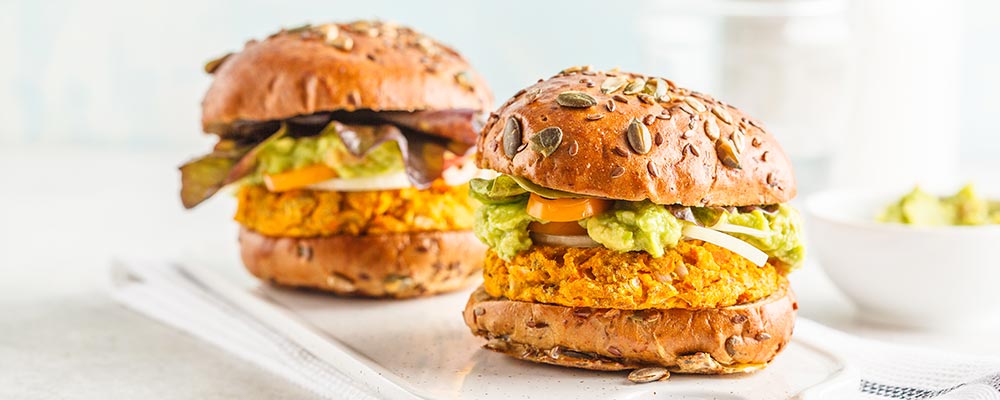
Plant-based Eating on the Rise
The appeal of plant-based eating has expanded over the past year, including a much larger market of consumers who are opting for flexitarian diet pattern (choosing more plant-based meal options while still consuming meat) both at home and on-the-go. With convenience top of mind for many customers, do all plant-based foods deserve a healthy halo? Let’s explore plant-based eating on the rise.
Convenience and Processed
With tech advances, we now live in a 24/7 society. Good or bad, this has affected our time management, blurring the lines between work and down-time. Based on this fact, traditional family meals and meal times have changed over the past 15 years as Millennials have become adults. Millennials on average watch more cooking shows than anyone else, and yet they cook less. They consider themselves the “Foodie Generation,” but are less interested in making their own meals from scratch than previous generations and are very involved in being the first to try innovative products.
The shift in plant-based eating and the need for convenience is leading to the attention and consumption of meat alternatives. Over the past year, we have seen launches from Beyond Meats, Impossible Foods and Litelife Foods. This should be no surprise, as Food Navigator reports that the meat substitute market is currently at $801.1 million in the US alone. Nevertheless, in the overall market, they represent a low per cent of proteins ordered at food service establishments.
Also, it’s important to understand that these meat alternatives are processed foods and don`t assume they deserve a healthy halo without researching the ingredients and nutrition facts table, especially when it comes to the fat and sodium content, plus novel ingredients in their mix.
 Minimally Processed vs. Ultra Processed
Minimally Processed vs. Ultra Processed
Health experts including me promote eating minimally processed foods most of the time. I’ve always suggested the 80/20 guideline: 80 per cent of the time cooking at home with minimally-processed ingredients and 20 per cent of the time can be convenience, processed foods. The 2018 Consumer Lifestyles Survey by Innova Market identifies that North American consumers want their own diet, as well as their family’s diet, to be healthier, with over 39 per cent having already increased their consumption of fruit and vegetables in order to be “healthy.”
A recent small but well-designed National Institutes of Health (NIH) study finds heavily processed foods cause overeating and weight gain (1). On the ultra-processed diet, people ate about 500 calories more per day than they did on the unprocessed diet. They also ate faster on the ultra-processed diet and gained weight, whereas participants lost weight on the unprocessed diet.
Final Thoughts
I enjoy lean meat, fish and poultry as part my healthy diet. I tried the Beyond Burger this past spring to see what all the marketing hype was about. Keep it in mind, I don’t often eat at quick service restaurants. I’m not the target market for this product, as I didn’t like the ultra-processed spongy texture, the taste was mediocre and it more expensive compared to the beef burger at the restaurant. But obviously there is a market for these options.
Nutrition and food scientists have known for decades that diets, such as the Mediterranean Diet, with minimally processed foods, including a variety of plant options continue to promote positive health outcomes. Most of the time, choose whole plant-based proteins, including seeds, nuts and pulses as part of your healthy lifestyle.
Jane and her team would love to assist your company to get into the latest
better-for-you food trends or speak at your upcoming event!
Click here to learn more.
References:
- Hall KD, et al. Ultra-processed diets cause excess calorie intake and weight gain: A one-month inpatient randomized controlled trial of ad libitum food intake. Cell Metabolism. May 16, 2019
Copyright © 2019 Jane Dummer | All Rights Reserved
